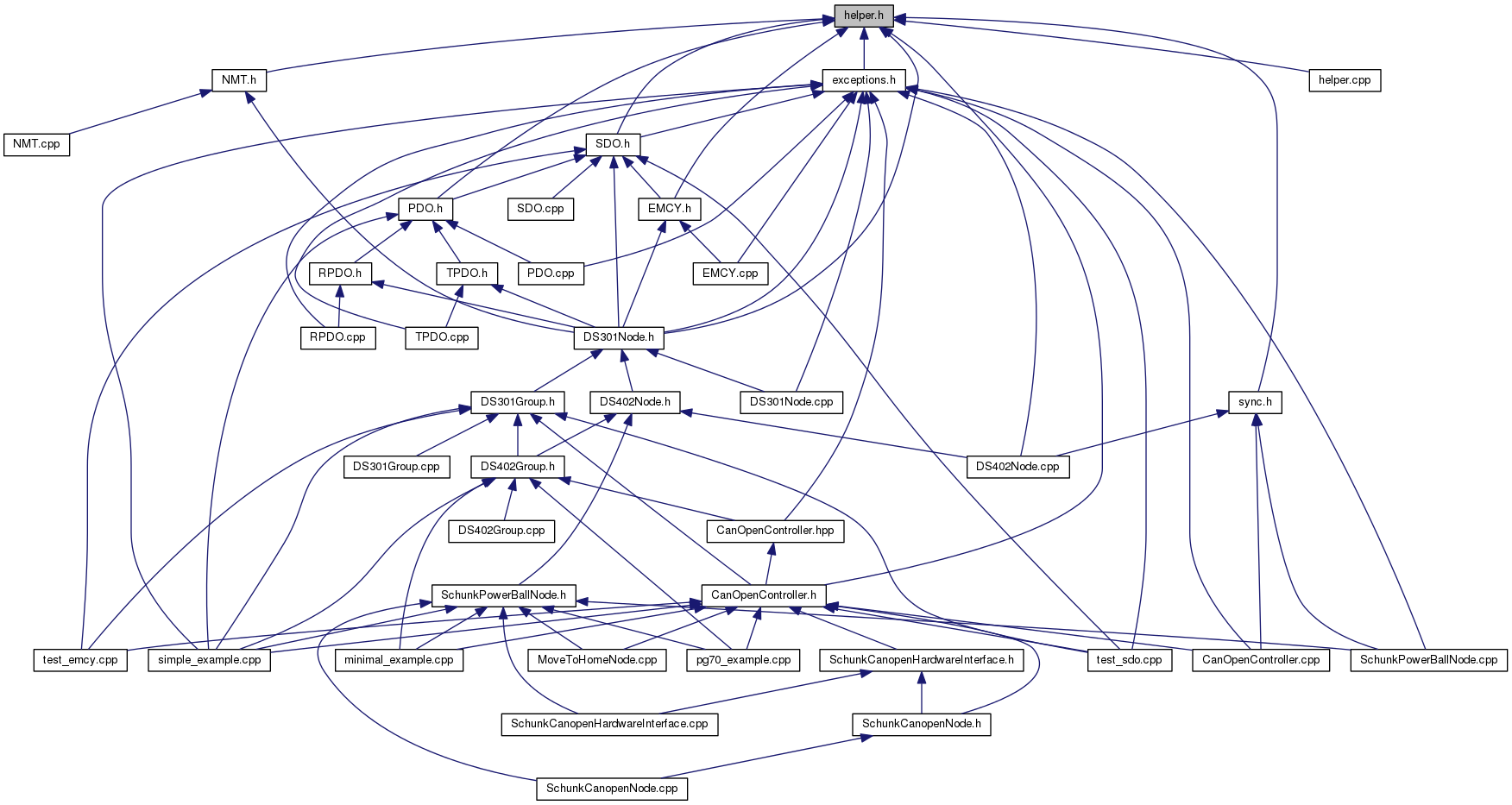Include dependency graph for helper.h:

This graph shows which files directly or indirectly include this file:

Go to the source code of this file.
Namespaces | |
| namespace | icl_hardware |
| namespace | icl_hardware::canopen_schunk |
Typedefs | |
| typedef boost::shared_ptr < icl_hardware::can::tCanDevice > | icl_hardware::canopen_schunk::CanDevPtr |
| typedef icl_hardware::can::tCanMessage | icl_hardware::canopen_schunk::CanMsg |
| typedef boost::shared_ptr < CanOpenReceiveThread > | icl_hardware::canopen_schunk::CanOpenReceiveThreadPtr |
Functions | |
| template<typename T > | |
| std::string | icl_hardware::canopen_schunk::binaryString (const T num) |
| template<typename T > | |
| T | icl_hardware::canopen_schunk::convertFromCharVector (const std::vector< uint8_t > &vec) |
| This converts a vector of uint8_t entries into another datatype with a matching byte length. The target datatypes must be of the same size as the vector has entries. Otherwise a std::bad_cast exception is thrown. So make sure to use a try/catch mechanism when using this function. | |
| template<typename T > | |
| std::vector< uint8_t > | icl_hardware::canopen_schunk::convertToCharVector (const T value) |
| This little helper transforms any datatype that has a size of at most 4 Bytes into a vector of uint8_t. If the data can't be converted, because its size is more than 4 bytes, the vector will be empty. | |
| std::map< uint32_t, std::string > | icl_hardware::canopen_schunk::getErrorMapFromConfigFile (const std::string &filename, const std::string &category="error_codes") |
| Creates an error map from a given INI file. | |
| std::string | icl_hardware::canopen_schunk::hexArrayToString (const unsigned char *msg, const uint8_t length) |
| Transforms an array of unsigned chars into a string of Hex representations of those chars. | |
| std::string | icl_hardware::canopen_schunk::hexToString (const uint64_t num) |
| Converts a hexadecimal number into its string representation 0xXX. | |
| std::string | icl_hardware::canopen_schunk::sanitizeString (const std::string &text) |
| This function removes all non-graphical characters from the given string. | |
Detailed Description
- Date:
- 2015-10-01
Definition in file helper.h.